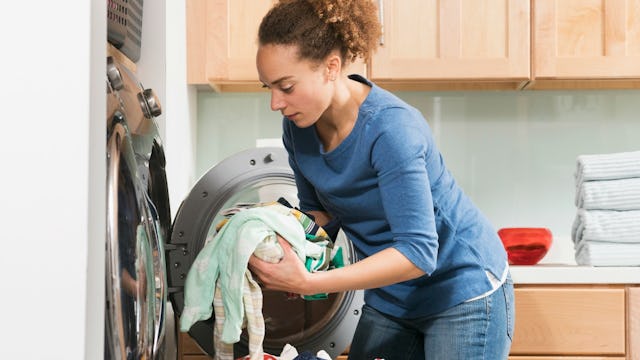I'm A Feminist Everywhere Except My Own Home -- But I Want To Change That

My initial response to the #metoo movement was one of personal intimidation. When everyone started putting the hashtag on their online profiles, I hesitated. It stirred painful memories in me that I needed time to process. I wasn’t able to immediately throw myself in so publicly.
By the time I came to the very personal decision that it was the right thing to do for me, the popularity of the movement started to feel more like a slap in the face. “This is not new!” I wanted to scream. “You can’t claim this! We’ve been saying it for generations; you just haven’t been listening.”
But then it stayed, not just as a passing meme, gaining momentum as time went on, empowering and emboldening women to change the cultural dialogue. Recently it’s taken an even more important turn.
We’re really examining the issues of responsibility and consent in ways we never have before. Regardless of your personal beliefs, you’re talking about it and that’s powerful.
We need to shine a light on these taboos in order to examine deeply ingrained societal misogyny. There’s one (well, more than one) area that’s still largely in the dark — the inside of our own homes.
In my professional and social life, I’ve often been a voice for gender equality. I’m a feminist everywhere expect my own home, and that has to change. It’s still hard for me to say that out loud. Much like my initial intimidation, we’re conditioned not to let people know about these things.
We’ve talked about the invisible tasks that married, or otherwise committed, women with children disproportionately bear. Fewer and fewer families are able to sustain themselves on a single income. We’re the breadwinners, the caregivers, the record keepers, the appointment makers, the financial planners, etc. I could go on, but as I said we have discussed this. I want to discuss what happens after that. How it plays out in the gritty day-to-day human interactions between spouses and their children, behind closed doors.
Most of the mothers I know feel trapped in some way. A lot of people are unable to fully appreciate the depth of that last statement.
Many women feel that they are held hostage by responsibility, to be the one who “makes it work” no matter what. We stay in lopsided relationships, abusive relationships, emotionally withholding relationships, unfaithful relationships. To not do so would not only invite financial and social repercussions for women and their children (there’s a lot more that should be said on those topics), but would have serious emotional impacts on our kids.
Here’s the really hard part: our children see it all. We’re teaching them. We are socializing gender norms that we are actively suffering from. Now, this is where you say, “It sounds like you have a bad marriage and just need to get out. It’s not like this in my home.” If that’s the case for you, I am sincerely happy for you and your family. But this is still relevant to you.
As the dynamics of our economies and homes change, women are disproportionately getting the short end of the stick. This is the social landscape in which a large percentage of your children’s future friends, coworkers, lovers, and spouses will grow up in.
So we finally get to it, that squirmy feeling. The same one I first had about saying #metoo. The same one we had when we were forced to look closer at the role consent played in our lives, especially while we were dating. It’s squirmed its way through all of that, right into my home and squarely pointed it’s finger right back in my face. But that blame, that responsibility, that guilt, that we as women are conditioned to carry, is the crux of the issue.
I don’t have a solution. If I did, I wouldn’t be stuck, like so many other moms. I’m just holding a light up with my shaking hand, hoping to start a conversation.
This article was originally published on